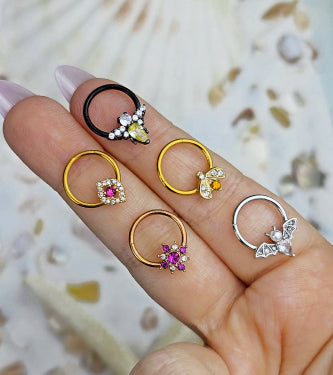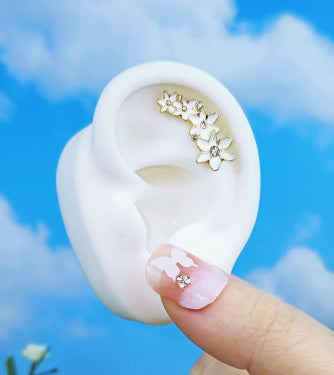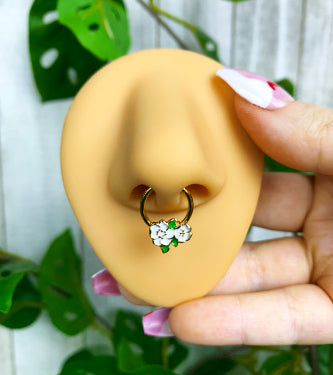Most of us know of at least one person with an allergy to nickel. In fact, it’s estimated that up to 28 percent of the American populace is allergic or sensitive to nickel, which is one of the leading causes of contact dermatitis in the United States. So how do you buy jewelry for someone with this type of sensitivity? There are several options to choose from in terms of nickel free materials, so making a decision based on preference and allergy severity is a good way to go. Here are the facts:
Those with high sensitivity to nickel can still wear metal jewelry, but stainless steel is a bad idea. Steel that’s coated with another metal, such as 24kt gold plating or anodized titanium can work for some, but solid jewelry is always best, as a single chip in the coating over time can spell disaster for the skin. Solid grade 23 titanium, solid 14kt or 18kt gold, platinum, niobium, and .925 sterling silver are all great options. For those with rare and extreme allergies, sticking to the titanium or niobium is the best way to go.
There are also non-metallic jewelry materials that can be worn to eliminate the possibility of allergic reaction. Jewelry that is made entirely out of acrylic, for example, will have no metallic trace elements. Of this grouping, bioplast is by far the best, as it is entirely biocompatible, causing no skin reaction whatsoever. Even for those who aren’t sensitive, bioplast is a wonderful option to lessen the risk of migration or rejection in body piercings and maintain the overall health of the healing skin. For women who are pregnant and have irritable skin, PTFE can also be used as a retainer for belly button piercings.
With the growing prevalence of nickel allergy around the world, there are more options for body jewelry, earrings, and costume jewelry than ever before. So now that you know the basics, all that’s left is to pick a favorite style. Happy shopping!





